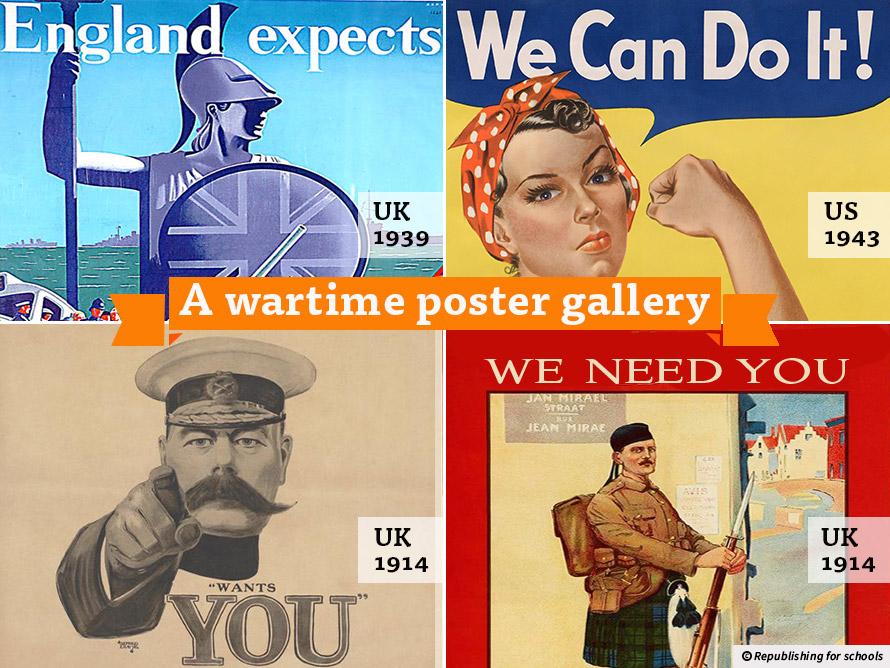Should we bring back national service? Conflicts across the world have brought warnings that Europe’s standing armies are not nearly big enough to cope with a full-scale war.
Army chiefs call for Nato ‘citizen armies’
 Joining up: During World Wars One and Two, calls to serve your country in the name of duty were commonplace.
Joining up: During World Wars One and Two, calls to serve your country in the name of duty were commonplace. Glossary
Conscription - Forced enrolment in the army.
National service - Non-optional military service during peacetime.
Nuclear deterrents - The idea that if a country's adversaries know it has the power to use nuclear weapons, they will not attack it for fear of retaliation.
Nato - The North Atlantic Treaty Organisation was founded in 1949 to unite Western democracies in Europe and North America against the perceived growing threat of the USSR. It now has 31 members.
Logistics - The planning and organisation of a project or operation.
